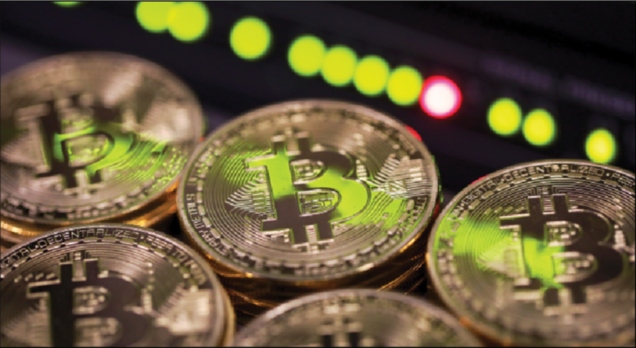Casting a ray of hope on the new found 'gold'
 |
|
Central government authorities on Sept 4 ordered a ban on Initial Coin Offerings, or ICOs — a nascent form of fundraising in which technology start ups issue their own digital coins. PROVIDED TO CHINA DAILY |
The Chinese mainland's ban on ICOs, announced on Sept 4, heralded the authorities' desire to put a stopper on the red-hot cryptocurrency market to prevent it from getting out of hand, at least for the time being.
A week later, local media reported that the authorities had informed domestic bitcoin exchanges to stop trading in cryptocurrencies, citing people familiar with the matter.
The move was later confirmed when major trading platforms, including BTC China, Huobi and OKCoin announced on Sept 14 and 16 they would halt yuan-to-bitcoin trading by the end of October. The platforms will also shut down thereafter, potentially sounding the death knell for digital currency investors in China.
The stringent measures set off wild swings in bitcoin prices in September, with prices plummeting by more than 30 percent at one stage — from $4,678.5 to $2,989.43 — immediately after BTC China's announcement. However, prices quickly rebounded by almost the same force two days later, according to data from Coindesk. Bitcoin prices had surged a staggering 600 percent so far this year.
"The shutdown of the Bitcoin exchanges is really beyond my expectations," said Fang. Despite media reports that the crackdown was fueled by regulators' concern over capital flight and money laundering, he still believes that digital currency has more benefits than drawbacks.
Fang has been buying bitcoins since 2014 when he was still a university student. Having studied technology involving bitcoins, he believed that he "sees the true value in bitcoins". With a total investment of more than 100,000 yuan, he has had his portfolio decupled within three years.
He described bitcoin as a "new gold" in the Antarctic Pole. "It's in the de facto condominium so that everyone has the right to dig it. Like gold, bitcoin is also scarce as supply is very much limited. And, dealing in the digital currency calls for very low cost or none at all, while the transaction protects your identity and money, making it a more competitive medium of exchange over traditional currencies in the world."
Despite its scarcity, the value of bitcoin is also backed by growing public acceptance with global transactions reaching fever pitch. Companies like WordPress, Microsoft and Intuit have been accepting bitcoins for purchases and subscriptions. Japan's declaration of crypto services as legal payment methods has further accelerated its use beyond digital to brick-and-mortar retail. Russia has also said it will legalize the use of cryptocurrencies like bitcoin.
In China, government officials have clearly defined bitcoin as an asset rather than a currency, weakening its utility.
Sheng Songcheng, counselor of the People's Bank of China, told Yicai.com earlier this month the central bank had already concluded that bitcoin does not enjoy the status of a currency in law because it is not issued by the monetary authorities — it also lacks currency nature such as law-enforced-compensation and enforceability.
However, he projected a gleam of hope, suggesting that the mainland monetary authorities should consider issuing a central bank virtual currency that it could regulate and run properly.
Market experts are on the same page. Hong Kong Information Technology Federation President Francis Fong Po-kiu believes that China will set up its own digital currency trading platform with the issuance of a national digital currency in the near future.
"As Russia, Singapore and some other countries are examining the possibility of issuing their own digital currencies, investors could trade country-level digital currencies in the near future," he said.
In Hong Kong, former financial secretary John Tsang Chun-wah defined bitcoin as "a commodity generated in the cyber world" and is "neither electronic money nor a stored value payment facility". As it is defined as a virtual commodity rather than a currency, bitcoin is per se not regulated by any of the local financial regulatory bodies, such as the city's de facto central bank, the Hong Kong Monetary Authority, or the Securities and Futures Commission.
Investors, on their part, are baffled with regard to the true value of bitcoins with the government's conflicting statements on the status of the digital currency.
JPMorgan Chase & Company Chief Executive Officer Jamie Dimon said the cyrocurrency is a "fraud" and a bubble that "won't end well".
"It's worse than tulip bulbs. It won't end well. Someone is going to get killed," he told a banking industry conference organized by Barclays. "Currencies have legal support. It will blow up."
Fortunately, for Fang, he had cashed out most of his bitcoins before the regulators flexed their muscles.
"I see the latest regulations as a sign that the cryptocurrency market environment is proving itself. I'm not that worried about my bitcoins. I can just withdraw all of them from the exchange."
After all, it's a super high-risk investment, he added, it will either earn you unexpected return or it can result in permanent loss.
cherrylin@chinadailyhk.com









